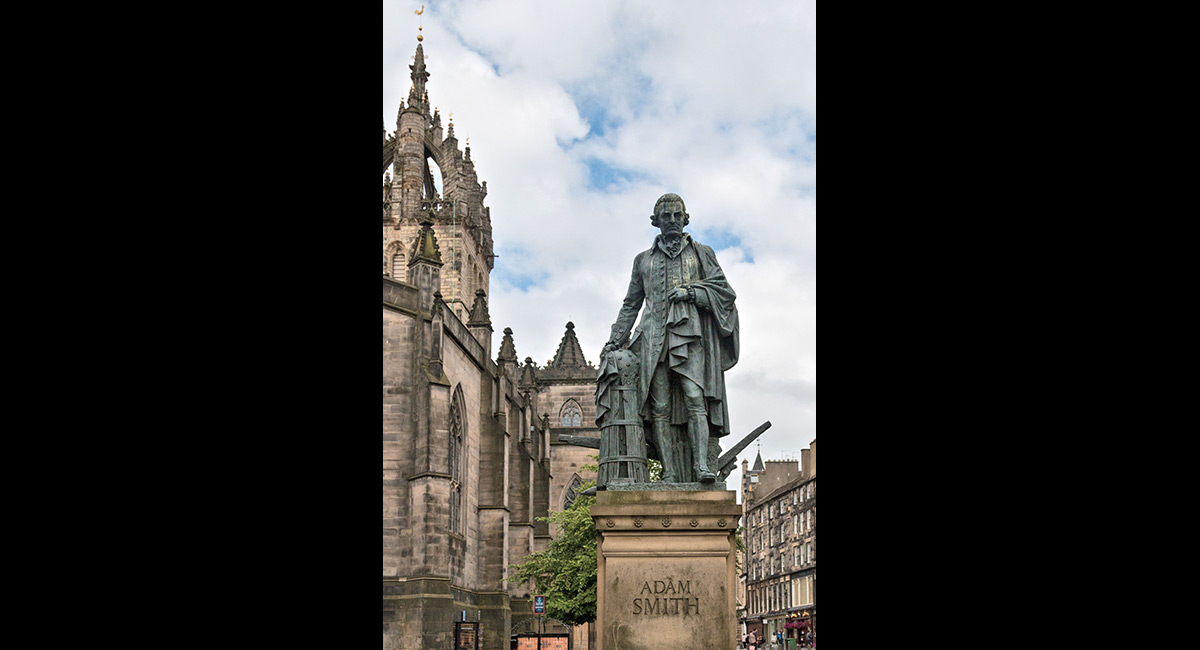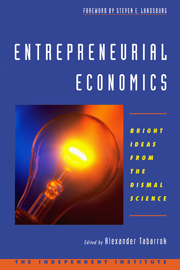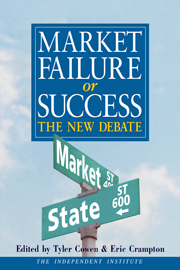The political left often invokes “race” to intimidate its opponents when arguing against them. That impetus may not be conscious, but the effect can be real.
A case in point concerns the legacy of Adam Smith, the great Scottish moral philosopher and economist. His grave and statue in Edinburgh, Scotland, are going to be considered for “reconfiguring” by the “Slavery and Colonialism Legacy Review Group,” a body appointed by the left-leaning Edinburgh City Council, according to an article in The Telegraph.
The article speaks of a dossier in which Smith has been “linked” to “slavery and colonialism.” Smith can be linked to slavery and colonialism only in the same way that Martin Luther, the great religious reformer, can be linked to indulgences and Martin Luther King Jr., the great civil-rights leader, can be linked to Jim Crow.
Adam Smith fulminated against the injustice of slavery in his first book, The Theory of Moral Sentiments, speaking of slave traders as the brutal and baseless refuse of the jails of Europe.
“There is not a negro from the coast of Africa who does not, in this respect, possess a degree of magnanimity which the soul of his sordid master is too often scarce capable of conceiving,” Smith wrote. “Fortune never exerted more cruelly her empire over mankind than when she subjected those nations of heroes to the refuse of the jails of Europe, to wretches who possess the virtues neither of the countries which they come from, nor of those which they go to, and whose levity, brutality, and baseness, so justly expose them to the contempt of the vanquished.”
Smith endorsed the contempt that victims of slavery felt for their oppressors, and led his readers to feel that contempt as well.
He framed the condemnation in a way so as to induce British readers to sympathize and identify with the victims of the slavers. Compared to the French and Italians, he suggested, the British were less refined and amiable, but more respectable. If Britons felt an invidious pride at being told that they were a step above in the respectable virtues, imagine their sentiment in pondering Smith’s words that the Africans are five steps above them in those same virtues.
Smith’s words, published in 1759, came 48 years before Britain’s 1807 act to abolish the slave trade. His words were quoted by a number of others, including Thomas Clarkson in his famous 1808 two-volume account of the abolitionist movement, The History of the Rise, Progress, & Accomplishment of the Abolition of the African Slave-trade, by the British Parliament.
In a Glasgow classroom on February 16, 1763, a student recorded Smith as saying that slavery was born of the “love of domination and tyrannizing,” which is why slaveholders clung to it. Contrary to popular belief, slavery was not profitable, and, as early as 1776, in his landmark book, Wealth of Nations, Smith emphasized that costliness.
So, in the first of Smith’s two published books, he railed against the injustice of slavery. And in the second, he demonstrated that slavery wasn’t even in slaveholders’ self-interest.
For years Smith was acknowledged by British abolitionists as an opponent of slavery. Yet now, in 2021, we’re supposed to believe that his “link” to slavery was discreditable?
Smith is not the only Scottish professor whom Clarkson commemorated in his great 1808 work. The others include Smith’s Glasgow teacher, Francis Hutcheson, and Smith’s Glasgow student, John Millar, as well as William Robertson of Edinburgh University. Clarkson also could have noted Gershom Carmichael, Hutcheson’s teacher at Glasgow. In other words, a long line of liberal moral philosophers helped to persuade their fellow citizens of the rank injustice of slavery. Their words deserve to be commemorated.
As for colonialism, Smith again is guilty. . . of being an opponent. In Wealth of Nations, appearing just a few months before the American Declaration of Independence, he suggested that the British government just let the American colonies go. And he advocated bringing an end to the British East India Company, which effectively ruled India as a monopoly backed by the Crown.
What impetus, conscious or otherwise, is behind the interest in effacing Smith from Edinburgh? Clarkson was deeply involved with William Wilberforce, one of Britain’s most prominent abolitionists, in the cause against slavery. If he saw fit to celebrate Smith as a leader in that cause, where did he go wrong?
The answer is that Clarkson didn’t go wrong. Smith had no association with slavery and should be seen today as a giant in the kind of clear-headed moral thinking that the political left, as it pursues its antiliberal crusades in tolerant societies such as the U.K., finds so challenging.
The same is happening in the United States, of course. Leftists are making quick work of towering figures from our past. But for the sake of our culture and of ourselves, we shouldn’t let them lie about history.












